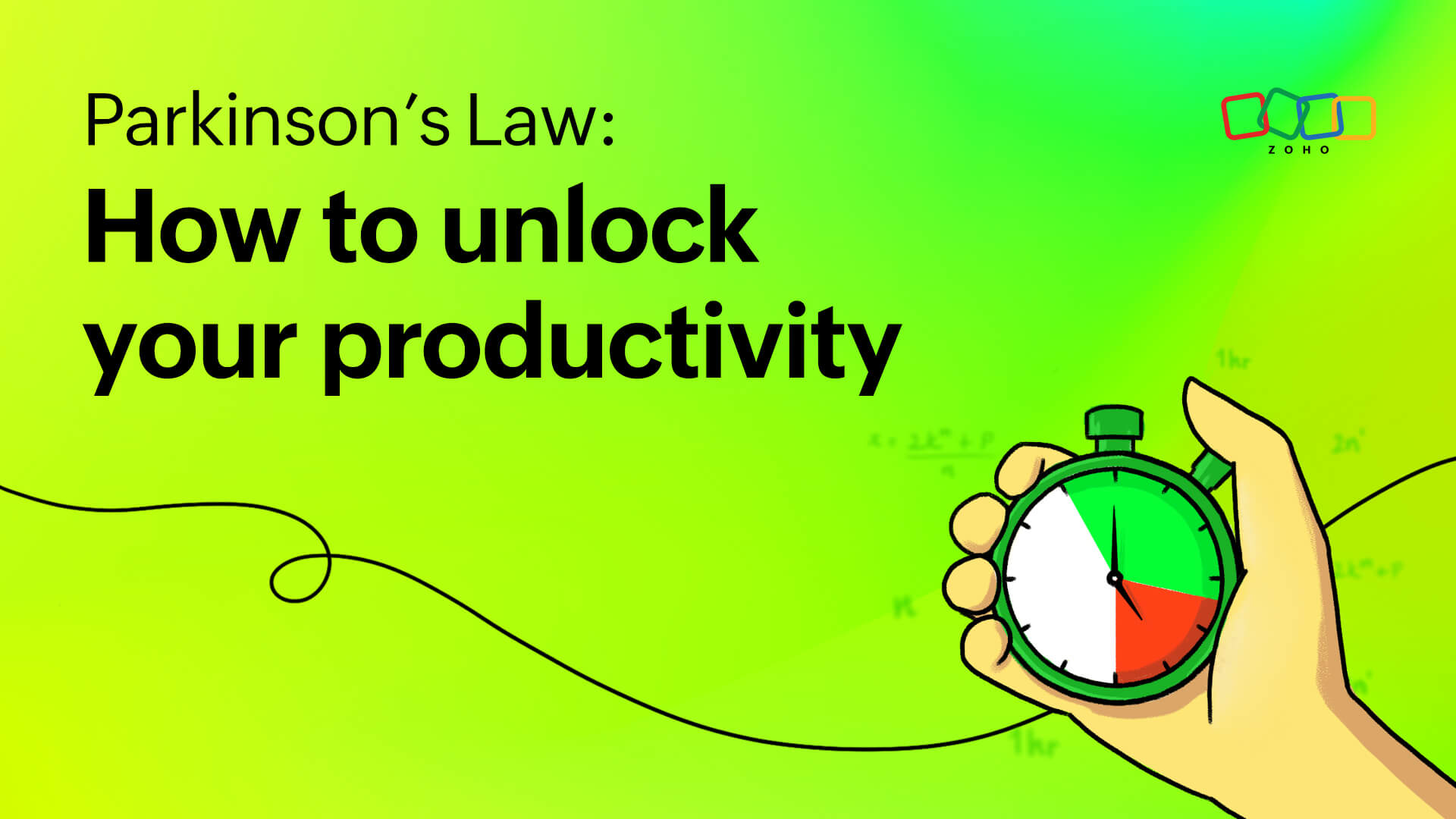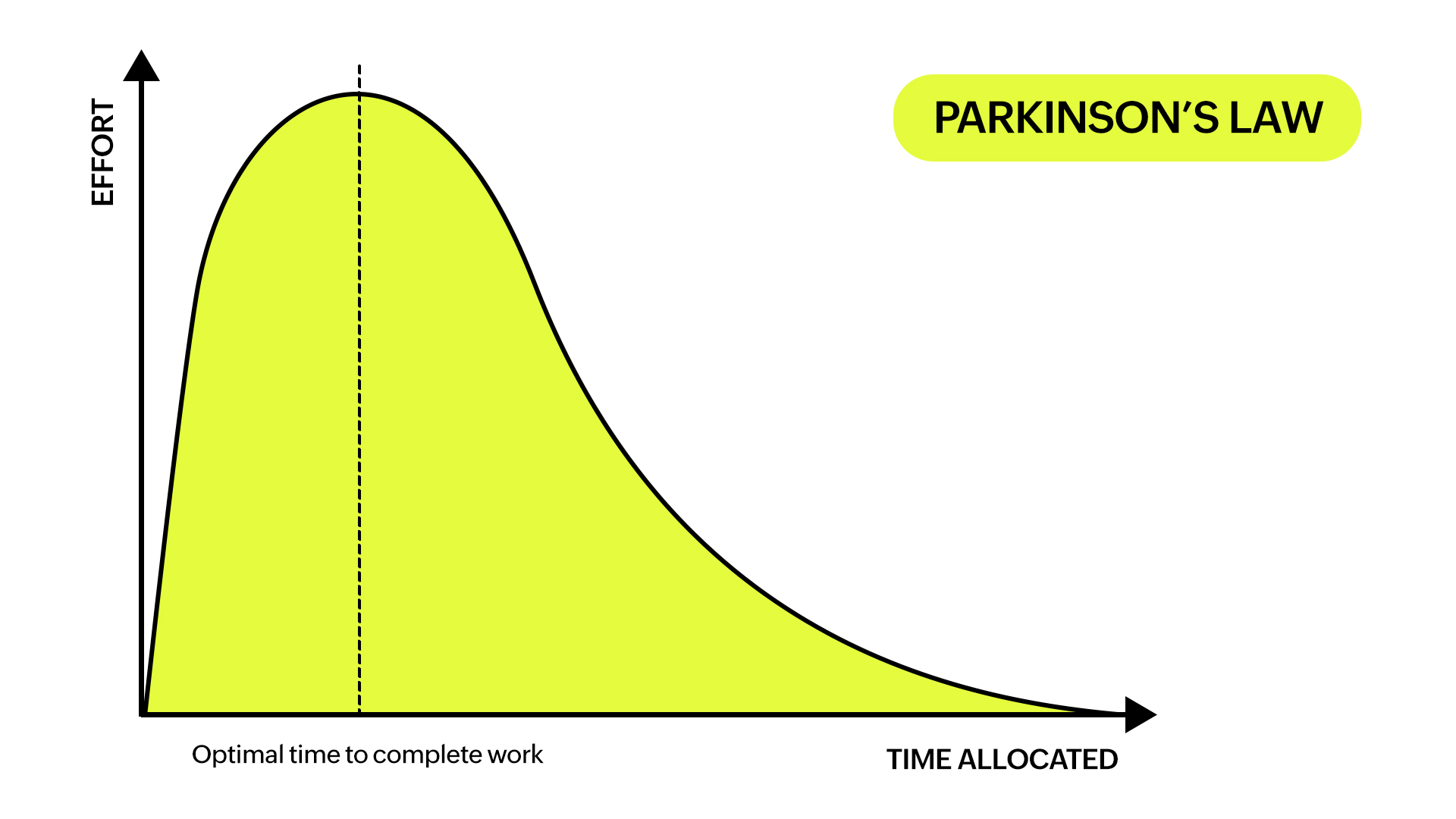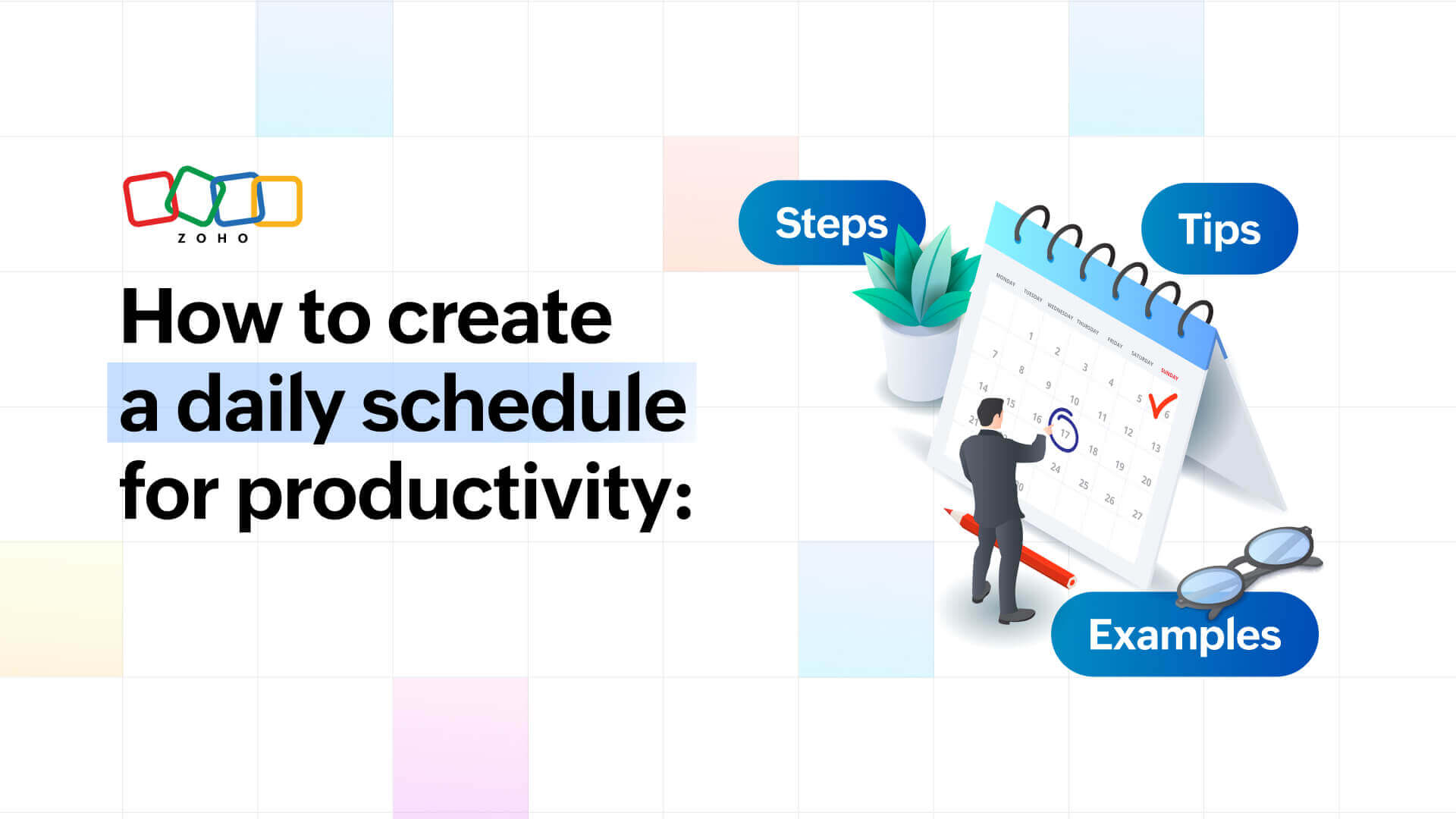- HOME
- All Topics
- Productivity in the workplace
- Parkinson's law: How to unlock your productivity
Parkinson's law: How to unlock your productivity
- Published : March 1, 2024
- Last Updated : August 22, 2024
- 1.3K Views
- 5 Min Read
Do you feel less productive until the final minutes on the clock? If you've been given one week to clean your room, you may find it hard to clean the room in one week. If your friends are coming over, the same task takes just one hour. How can there be a vast gulf in terms of duration?
Don't worry, it isn't your fault. It’s the doing of the notorious Parkinson's law. Let's explore what it is and the tips to unlock your productivity.
What is Parkinson's law?
The term was first crafted by Cyril Northcote Parkinson in 1955 for The Economist. His near-proverbial story involves a woman with the sole task of sending a postcard. A simple task that would have taken three minutes takes her half a day. She spends time searching for the right postcard, picking which umbrella to take for her walk to the post office, etc.
This humorous observation turned productivity law states that "work expands to fill the time allotted for its completion." If you give yourself a week to write a report, it'll miraculously take the whole week, even if it could be done in an afternoon. Let's see how work magically expands to fill the allotted time.
How work expands to fill time
Instead of realistically assessing how long a task takes, we tend to fixate on the available time. This stretches time like elastic even when the job shouldn't require it. Like a balloon full of air, work magically expands to fill the allotted time. This often leads to inefficiency and missed deadlines.
The lady in Parkinson's story spent too much time on perfectionism when there was no real need for it. A simple task ballooned into a day's ordeal in pursuit of perfectionism. Sometimes, you may even put off starting until the last possible moment.
Besides perfectionism, there are other monsters under the bed. You have a looming exam with weeks to prepare, yet precious hours melt away on “gathering resources” or “finding the most productive hours.” This classic student scenario highlights procrastination.
What about when a small task forks off into multiple unnecessary tasks? Have you started out with decluttering your wardrobe but ended up shopping for new clothes on your app?
Tasks seem to magically expand to fit the time you've allocated. It's not just your imagination playing tricks on you.
Examples of Parkinson's law
Parkinson's law finds its way into our everyday life. Let’s take a look at three examples.
The project proposal
Say you're given a week to prepare a project proposal for your boss. Despite having all of the necessary information at your fingertips, you spend the first few days procrastinating and convincing yourself that you have plenty of time. As the deadline looms closer, you scramble to put together the proposal, working late nights and sacrificing weekends to meet the deadline. Your work has now expanded to fill the time allotted.
The perfect assignment
If you're a student, this example might resonate with you. You have a lengthy research paper due in two weeks. As someone who excels in academics, you strive for excellence in all of your work. However, this perfectionism leads to delays. You spend excessive time researching, outlining, and crafting the perfect introduction, neglecting the actual writing of the paper. Even when you finally start writing, you rewrite and revisit each paragraph and try to find the “perfect” word.
The food dilemma
Have you ever taken a long time to decide what you'd like to eat? Let's say you’re faced with an extensive menu at a restaurant or numerous options on a food delivery app. You may have spent an excessive amount of time deliberating over each option, unable to make a decision. This results in frustration, delayed ordering, and might have taken longer than required.
Tips to overcome Parkinson's law
Now that we have a grasp on how Parkinson's law affects us, we need to know how we can avoid falling victim to it. This helps you finish your work faster and rest or move on to other tasks.
1. Set clear deadlines and milestones
Okay, picture this: you've got a project looming over your head, and it feels like it's just stretching on forever. Sound familiar? Well, let's nip that in the bud! Break that big project down into bite-sized chunks with clear deadlines. It's like giving your tasks a friendly little nudge in the right direction. Effective time management is just a bonus.
2. Embrace the "Pomodoro Technique"
The Pomodoro Technique is like an espresso shot of productivity. It involves breaking tasks into short, focused intervals. Set a timer for 25 minutes, dive into your task with all your might, and then take a break. Rinse and repeat.
This keeps pesky distractions at bay and ensures your tasks stay nice and trim. In addition, take breaks from work whenever necessary. Here are a few tips to achieve a healthy work-life balance. Your focus and productivity will thank you.
3. Prioritize tasks effectively
We've all got a million things on our to-do lists. However, it’s impossible to do everything at once. Here's the secret sauce: Use the power of “not now” and prioritize! Focus on the big fish first—the tasks that absolutely can't wait. Focus on completing high-priority tasks first to avoid getting bogged down in less critical activities.
4. Limit perfectionism
Perfectionism kills productivity silently. While it's great to aim for the stars, sometimes good enough is, well, good enough. Know when to call it quits and resist the urge to nitpick every little detail. Set realistic standards for success and aim for progress rather than perfection.
5. Implement time constraints
To prevent tasks from dragging on indefinitely, put a leash on the time limit. Set boundaries for how long you'll spend on each task and stick to them like glue. Allocating dedicated time slots for different activities throughout the day gives a good handle on time.
6. Avoid overcommitting
There's only so much one person can do. Know when to hit the brakes on unnecessary commitments and delegate when your plate is full. By mastering the art of saying no and keeping your to-do list in check, you can prevent tasks from expanding beyond their scope.
7. Regularly review goals
When priorities shift or unexpected circumstances arise, stay nimble and adapt to the twists and turns. Remember, sometimes the best route to reach your destination isn't always a straight line. Periodically review your goals and alter them to ensure they remain relevant and achievable.
8. Celebrate progress, not just perfection
Remember to celebrate your accomplishments along the way, even if they aren't picture-perfect. Acknowledge your wins, big or small, and give yourself a pat on the back. Striving for continuous improvement trumps fixating on flawless outcomes. After all, progress is progress, no matter how you slice it.
The final word
Knowing the tricks of Parkinson's Law can actually work in your favor. With these tips, you're now equipped to break free and reclaim control of your time. Remember, it's not about achieving perfection, it's about unlocking your true potential by setting boundaries, embracing focused deep work sessions, and prioritizing progress over unnecessary perfectionism.
 Srinath Vijayakumar
Srinath VijayakumarSrinath is a product marketer for Zoho Workplace. He talks about productivity, tips to improve communication, and nuggets on doing your best at your workplace. He has great interest in bringing a fresh perspective to the forefront. He is highly optimistic to the extent that he opens the refrigerator every 10 minutes, hoping to find something new. Outside of work, you will catch him playing football, travelling or writing half-finished stories.




